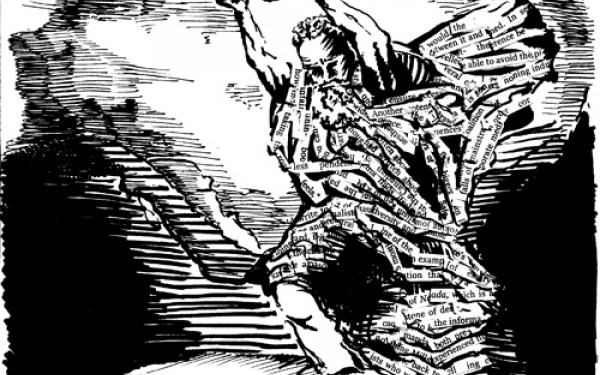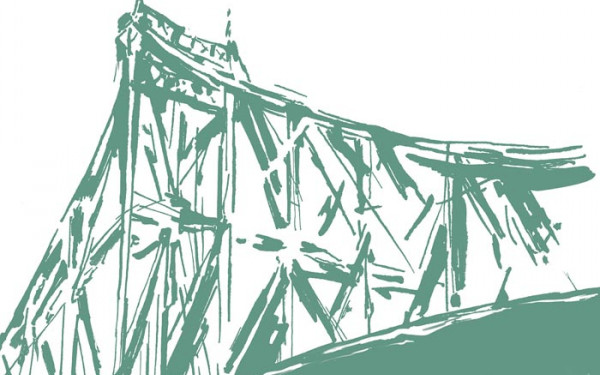Books Are Dead. Long Live Books!
Or, a Summary of Reading in 2010
So Bob Dylan said it best: “The times, they are a-changin.”
Now, nothing changes completely. All big change is comprised of and preceded by a series of small, often unnoticeable changes. For situations like these, I like to think of the sea eroding a cliff face. Maybe you have your own mental image to substitute, so by all means, imagine it right now, if you think that will help.
What I’m brass-tacks-talking about is this: literature is in a state of massive flux. We have reached the point where the sea erodes the cliff face so much that a bunch of rocks break off and fall, and the little log cabin perilously placed at the very edge tumbles down with them. We are sitting in that log cabin—and so are all our books.
As we prepare for the fall, perhaps we should have a discussion about the sea below us—a sea whose waters these pages will attempt to navigate both for and with you throughout the coming school year.
The Internet is supplanting TV. As a means to waste your time, as a means to learn things, as a formative childhood medium, you name it. Even as a means to, well, watch television. We are taking control again. No longer do we watch according to the networks’ schedules. The Internet, like books, re-empowers us, the end users.
We are spending less of our time watching pictures moving and more time reading words. I have yet to see any evidence that suggests this is producing better spellers, or even better writers—but it is something. Thanks to the Internet, the basic intellectual experience of reading text has never been so widespread, so readily available, the content on order so encyclopedic. We are living in amazing times.
Consider that movies have not rendered novels obsolete. The act of interpreting story through film and the consumption of stories as films, has left stories in glue-and-paper books in the dust. Financially, it’s no contest.
And yet we say, “but the book was better.” The experience of reading a book is still a different animal entirely. You are the director, the book a finely crafted shooting script.
Your budget is limited only by the outer reaches of your imagination, and if you like a little of Column B with Column A, graphic novels now constitute an accepted art form which comprises a vast and rich range of mind-expanding written, story-based art.
As for stories with a little something extra, it’s also worth mentioning that—yes it’s happening—e-books are replacing books. We don’t need paper and ink to convey the basic story experience anymore.
In fact, moving past it may end up being the best thing to happen to literature since Johannes van de Gutenberg invented the printing press. Technology dictates what a medium is capable of.
E-books represent new possibilities to a stunning degree, and before long, you may well be reading even The Link on a screen (and, now that our website doesn’t suck anymore, it wouldn’t hurt to check it out either).
There are those who are afraid of this shift, and they are many. They don’t like the idea of novels doing things or the experience of text being morphable. They don’t want to know what writers are capable of if their inner visual artist is given a little bit of freedom.
So, let’s not all run around, chickens with our heads cut-off, worrying about the death of books or the death of reading or the death of writing.
We are not wearing virtual reality headgear in our flying cars in 2010. We are reading books, riding on buses. It seems like humanity has agreed that the written word is something worth holding onto. Not the be-all-and-end-all of human communication, information or entertainment—but not dead by a long shot.
This article originally appeared in Volume 31, Issue 04, published September 7, 2010.

__862_700_90.jpg)




2_600_375_90_s_c1.jpg)